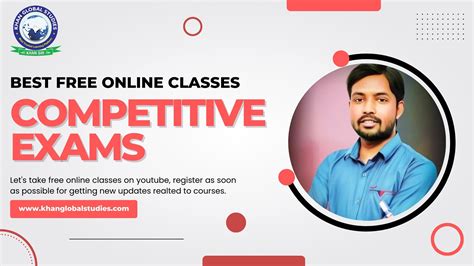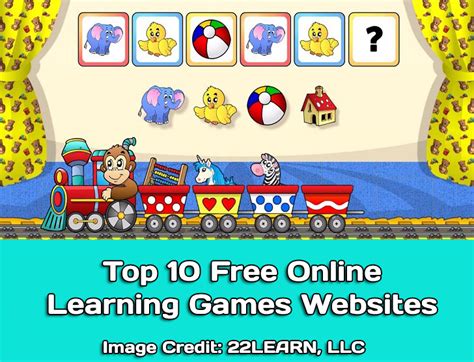Free Online Education

In today's rapidly evolving educational landscape, the concept of free online education has gained immense popularity and accessibility. With the advent of technology and the rise of the internet, educational resources have become more abundant and readily available to learners worldwide. This article delves into the world of free online education, exploring its various aspects, benefits, and the impact it has on traditional learning methods.
The Rise of Free Online Learning Platforms

The digital revolution has brought about a paradigm shift in the way knowledge is disseminated and acquired. Numerous platforms and initiatives have emerged, offering a vast array of courses and educational materials at no cost to learners. These platforms cater to diverse interests and academic levels, ranging from primary school subjects to advanced university-level courses.
One of the pioneers in this field is Coursera, which partners with leading universities and organizations to provide online courses. With a wide selection of topics, from computer science and business to humanities and health, Coursera offers a comprehensive learning experience. Another notable platform is edX, known for its high-quality courses and partnerships with top-tier institutions like Harvard and MIT. FutureLearn, backed by The Open University, focuses on flexible learning, allowing users to study at their own pace.
Diverse Learning Opportunities
Free online education platforms offer an extensive range of learning opportunities. From programming and data science to art history and language learning, the options are virtually limitless. These platforms often feature interactive elements, such as video lectures, quizzes, and discussion forums, enhancing the learning experience.
| Platform | Subjects Offered |
|---|---|
| Coursera | Computer Science, Business, Humanities, Health |
| edX | Engineering, Social Sciences, Data Analysis, Language Learning |
| FutureLearn | Health & Psychology, Creative Arts, History, IT & Programming |

Furthermore, many platforms provide certifications upon course completion, adding value to learners' skills and knowledge. These certifications, while not always formally recognized, can enhance one's resume and demonstrate a commitment to lifelong learning.
The Benefits of Free Online Education

The accessibility and flexibility of free online education present numerous advantages to learners worldwide. Here are some key benefits:
- Flexibility and Convenience: Online courses can be accessed from anywhere with an internet connection, allowing learners to study at their own pace and fit learning into their busy schedules.
- Diverse Learning Styles: With a variety of multimedia resources, including videos, podcasts, and interactive elements, learners can choose the format that best suits their preferences and learning styles.
- Global Reach: Free online education breaks down geographical barriers, enabling people from all corners of the globe to access high-quality educational content. This promotes cultural exchange and a more inclusive learning environment.
- Cost-Effectiveness: Perhaps the most significant advantage is the absence of tuition fees, making education accessible to those who may not have the financial means to pursue traditional degrees. This opens doors to a wider range of learners.
- Continuous Learning: Free online courses encourage a culture of lifelong learning, allowing individuals to acquire new skills or deepen their knowledge in existing fields.
Case Study: Impact on Career Development
Consider the story of Sarah, a working professional who decided to enhance her skills by enrolling in a free online course on digital marketing. Despite having a full-time job, Sarah found the flexibility of the course to be invaluable. She was able to complete the course modules during her evenings and weekends, fitting learning around her work schedule.
The knowledge gained from the course not only boosted her confidence but also led to a promotion at work. Her employer recognized the value of her newly acquired skills, and she was offered a more senior position with increased responsibilities. Sarah's story highlights how free online education can directly impact career development and open doors to new opportunities.
The Future of Free Online Education
As technology continues to advance, the future of free online education looks promising. With the integration of artificial intelligence and machine learning, personalized learning experiences are becoming more prevalent. Adaptive learning platforms can tailor content to individual needs, ensuring a more effective and engaging learning journey.
Additionally, the concept of micro-credentials is gaining traction. These are short, targeted courses or modules that focus on specific skills or knowledge areas. Micro-credentials can be stacked together to form a more comprehensive certification, providing learners with a flexible and customizable educational path.
Challenges and Considerations
While free online education offers numerous advantages, it is not without its challenges. One of the primary concerns is the lack of formal accreditation and recognition. Although many platforms offer certifications, these may not be as valued by employers or educational institutions as traditional degrees.
Furthermore, the self-paced nature of online learning requires a high level of self-discipline and motivation. Without the structure of a traditional classroom, some learners may struggle to stay focused and complete courses. However, many platforms are addressing this issue by incorporating interactive elements and providing support networks to enhance learner engagement.
Are free online courses as rigorous as traditional courses?
+The rigor of free online courses can vary widely depending on the platform and the specific course. While some courses may be less demanding, many top-quality platforms offer rigorous and challenging content. It's important to research and choose courses that align with your goals and expectations.
Can I earn a degree through free online education platforms?
+While some platforms do offer degree programs, these are often fee-based. Free online education platforms typically provide individual courses or certifications, which can enhance your skills but may not lead to a formal degree. However, these courses can be a valuable addition to your portfolio and can support your academic or professional goals.
How can I ensure the quality of a free online course?
+Researching the platform and the course provider is essential. Look for platforms that partner with reputable institutions or industry experts. Check reviews and ratings from previous learners to gauge the quality and value of the course. Additionally, consider the course curriculum and whether it aligns with your learning objectives.
In conclusion, free online education has revolutionized the way knowledge is shared and acquired. With its flexibility, accessibility, and diverse learning opportunities, it has become a powerful tool for personal and professional development. As technology advances, we can expect even more innovative and impactful learning experiences to emerge, further democratizing education worldwide.


